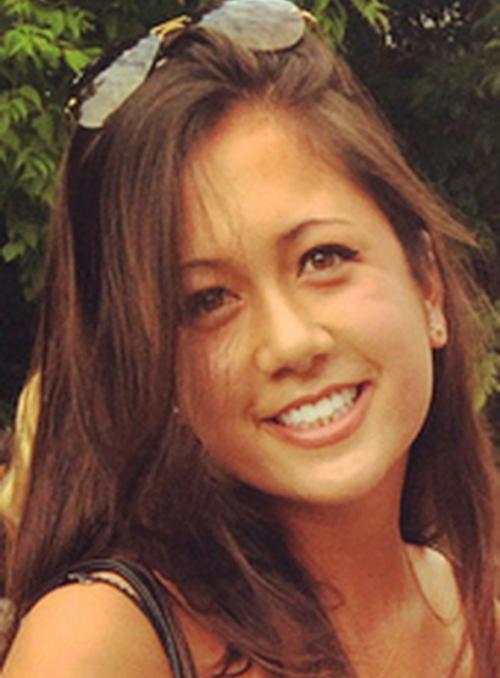Emma Borden '15
Major: College Scholar
Hometown: Ithaca, NY
Why did you choose Cornell?
I chose Cornell because of its size and its scope. I was not entirely sure of what I wanted to study, and I knew that regardless of what I chose I would be able to thrive at Cornell. In addition, I knew that I wanted the people around me to be studying all different subjects and disciplines so that they could engage and challenge me from all different perspectives. At Cornell, these points of engagement and these challenges have undoubtedly enriched my undergraduate experience.
What is your main Cornell extracurricular activity -- why is it important to you?
Dance has always been important to me and at Cornell it has been my main extracurricular activity. I have taken technique classes in the Department of Performing and Media Arts throughout my Cornell career and I’ve participated in many Department productions. Dance at Cornell has given me a community entirely different from my other social and academic ones, a sense of discipline and commitment distinct from that required by my other endeavors, and an appreciation for the performing arts that I would not have cultivated otherwise.
What was your most profound turning point while at Cornell?
My most profound turning point occurred early in my senior year. In just a few weeks I had met multiple times with my thesis advisor, taken out dozens of books from the library, attended various talks on Middle East politics and international relations, and realized that my earlier friendships had remained strong even though I had been abroad for an entire academic year. I always knew these resources were at my disposal, but I suddenly recognized that this year was my last chance to take full advantage of all of the qualities and opportunities Cornell has to offer. I hit the ground running senior year, and I realized that Cornell provided everything valuable I needed to keep my momentum going.
What accomplishments/activities are you most proud of while at Cornell?
I am most proud of my senior honors thesis. The research and writing were a year-long process, but the thesis also represents the capstone to my entire undergraduate career. I have never worked so hard, or for so long, on a single project. I am very lucky that this project was entirely my own creation and that I was enabled by the College Scholar Program to devote so much time and so many of my energies to it.
What, if any, research projects did you participate in at Cornell?
My senior honors thesis was the largest research project I undertook at Cornell. Apart from my thesis research and to prepare for it, I have worked as a research assistant for professors, assisting their work on Middle East politics and Israeli-American relations.
What Cornell memory do you treasure the most?
My best memories are, every year, of the first weeks of the fall semester. It is wonderful to be surrounded by friends – with the promise of their friendship for all the busy months to come – and to be excited by the horizons of new courses.
Who or what influenced your Cornell education the most? How or why?
I deeply appreciate the opportunity to have worked so closely with Professor Ross Brann, and I will always be grateful for his constant encouragement. I took a course with him freshman year which confirmed my decision to study the Middle East at Cornell. In my senior year, Professor Brann was both my advisor and the chair of my thesis committee, and we met every other week throughout the year. He is a steady source of advice and inspiration, and he has been crucial to the success of my time at Cornell.
How did any of your beliefs or interests change during your time at Cornell?
Before college, I did not believe that, as a young person, I could be truly qualified to join conversations about my main academic interest – Middle East politics. How could any undergraduate possibly know enough about the subject? At Cornell, my belief in my own capabilities changed. I realized that I did not need to be the most esteemed expert in the field in order to have a valuable point of view and to defend it, and that I did not need to have had a full career before I could voice my observations and ideas. Cornell has taught me that if one is informed, strong-minded, and open to criticism, she needn’t hesitate to join even the most complex conversations now.
What do you value about your liberal arts education?
I believe a liberal arts education is very important to the growth of a young adult. At Cornell, I’ve realized that these years may very likely be the only time in my life when I’ll be able to explore different disciplines and fields of study. As a liberal arts student, I value the fact that my education has reminded me of the need to be informed and curious and has strengthened these characteristics within me.
What are your plans for next year; where do you see yourself in 10 years?
I will be in D.C. this summer working at a think tank that focuses on U.S. foreign policy in the Middle East. Much of my research will be concerned with Iraq and Syria. At the same time, I will be applying to various scholarships and to some graduate programs abroad. In the fall, I hope to move on to another position in D.C. or to go to the Middle East to experience first hand some of the social and political dynamics that inspire my academic and professional ambitions. In ten years, I would like to be in a position – either inside or outside the federal government – in which I can influence U.S. foreign policymaking.
Anything you'd like to add about yourself that these questions didn't address?
Although I love Cornell and the Ithaca campus, I think it is very important for students to seriously consider studying abroad. I have never come across a student who has regretted going abroad, but I know many people who wish they had. There is no drawback to having a more global and nuanced perspective, and studying abroad during the academic year or during the summer encourages one’s ability to embrace a more diverse and tolerant outlook.




